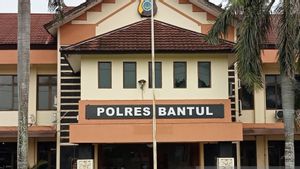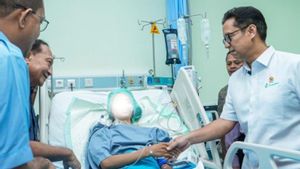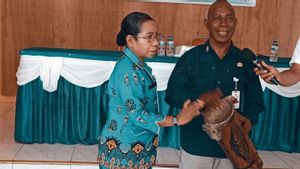JAKARTA - Epidemiologist from the University of Indonesia, Pandu Riono, regrets the attitude of the central government in taking the policy of joint leave on November 28 to 1, 2020.
This policy, he said, proves that the government is more concerned with restoring the economic crisis than handling the pandemic. Although these efforts are good, according to him this is not appropriate if the COVID-19 cases are still high.
"This policy is the same as when Jusuf Kalla was still the Vice President of the Republic of Indonesia. Mr. JK made a long holiday together after the economic crisis. But, now it is not an economic crisis but a disease crisis. You shouldn't be given a vacation," Pandu said on Sunday. , November 1.
Pandu said that the government should have known that the long holiday policy made many people vacation outside the city and increased the risk of spreading COVID-19 in various regions.
However, collective leave still applies. This, according to Pandu, was the aftermath of the misplaced position of Coordinating Minister for the Economy Airlangga Hartato as Chair of the Committee for Handling COVID-19 and National Economic Recovery (KPC-PEN).
"This happened because the handling of the pandemic was led by the Ministry of the Economy. Yes, it is certain that the main direction is the economy, not overcoming the pandemic," said Pandu.
"So, actually the government is raising the cases, not the public. The government's policies are driving the increase in cases," he continued.
As is known, the Chairperson of the Task Force for Handling COVID-19 Doni Monardo said that positive cases of COVID-19 often increase during long holidays. According to him, an increase in COVID-19 cases during holidays has occurred during Eid and Eid al-Adha.
According to him, even though President Joko Widodo (Jokowi) has announced during the Idul Fitri holiday that people do not travel to their hometowns to carry out the homecoming tradition, in fact people still do it.
"The President, long before Eid al-Fitr, repeatedly chaired meetings. Finally, the government's decision was that there would be no going home or no return to the village. But after the Eid leave ends, we see an increase in cases but the number is not significant," said Doni.
Likewise during Eid al-Adha. The head of the National Disaster Management Agency (BNPB) said the number of cases had also increased again but not significantly.
However, a different incident actually occurred during the long holiday which occurred on 23-26 August. From the data he has, Doni said that on September 1 there was an increase in cases in almost all major cities in Indonesia.
The English, Chinese, Japanese, Arabic, and French versions are automatically generated by the AI. So there may still be inaccuracies in translating, please always see Indonesian as our main language. (system supported by DigitalSiber.id)













